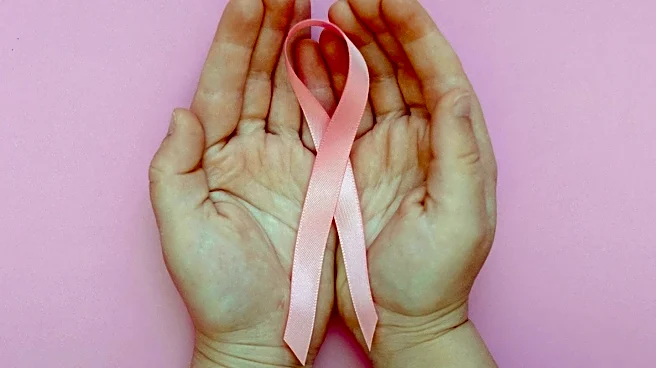What's Happening?
A study led by Professor Sherene Loi at the Peter MacCallum Cancer Centre has revealed that breastfeeding provides lasting immune protection against breast cancer. Published in Nature, the research explains how childbearing and breastfeeding reduce a woman's
long-term risk of breast cancer by enhancing the presence of specialized immune cells, CD8+ T cells, in breast tissue. These cells act as local guards, attacking abnormal cells that could develop into cancer, particularly the aggressive triple-negative breast cancer. The study involved preclinical experiments and data analysis from over 1,000 breast cancer patients, showing that women who breastfed had tumors with higher numbers of protective T cells and improved survival rates.
Why It's Important?
This research offers significant insights into breast cancer prevention and treatment, highlighting the role of immune changes in breast tissue rather than hormonal changes during pregnancy. Understanding the protective mechanism of CD8+ T cells could lead to new approaches in preventing and treating breast cancer, potentially reducing the incidence of this disease, which is the most common cancer among women in Australia. The findings could influence public health strategies and encourage breastfeeding as a preventive measure against breast cancer, impacting healthcare policies and patient education.
What's Next?
Further research may explore how to harness the protective effect of CD8+ T cells for breast cancer prevention and treatment. The study's findings could lead to the development of therapies that mimic the immune changes observed in women who have breastfed. Additionally, healthcare providers might increase efforts to promote breastfeeding as a preventive measure against breast cancer, potentially influencing public health campaigns and educational programs.
Beyond the Headlines
The study underscores the importance of understanding immune system dynamics in cancer prevention, which could shift the focus from hormonal to immune-based strategies in breast cancer research. This could lead to ethical discussions on promoting breastfeeding for health benefits and the potential societal impacts of such recommendations.















